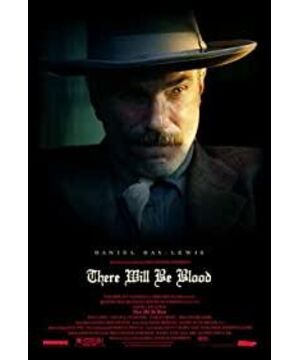filming "The Blood Is Coming", 37-year-old Paul Thomas Anderson seemed to have his soul grabbed by a huge "Kubrick's Hand", especially those that can make the whole body. The bones are followed by the creaking soundtrack, the final climax scene and the ending method, which makes this movie shrouded in an ominous "Kubrick atmosphere" several times. But the strange thing is that before this work came out, we hardly saw any signs of this in Anderson. Before that, when people talked about this talented Hollywood director, they were always used to telling him and Robert. · Altman is linked together, not only because they are also known for their good handling of multiple characters and multiple clues narratives, but also because of the legendary allusions about how they established the relationship between the master and the apprentice. If Robert Altman’s film "Short Film Collection" adapted from a series of short stories by American writer Raymond Carver is regarded as his typical work, then the corresponding works of Paul Thomas Anderson should be It's the cunning and charming "Boogie Night". To a certain extent, the apprentice's works are even more integrated narrative charm than the master's, which is largely due to Anderson's life experience in his youth. In 1997, when Anderson was confidently depicting the "degrading" picture of the American porn industry in the late 1970s, he had not seriously considered whether the creators should be condescending, but in 1999's "Magnolia", he finally He began to be constrained by his talents. In order to dispel the strong depression that lay deep in his heart, when writing the script, he quietly buried in the lens many secret information that surprised later discoverers, and this restraint and The depression was finally swept away in "The Blood Is Coming"!
1. Music is a vital role
. At the age of 37, Stanley Kubrick was just a "young director" who just showed his talents in Hollywood because of the film noir "Kiss of the Killer". At the same age , Paul Thomas Anderson has already completed Boogie Nights and Magnolia. This kind of prematurely revealed talent and prematurely arrived achievement is disturbing enough, but it proves that "Blood is Coming" has what it is now. Profoundness and purity are inevitable.
In this film, Anderson obviously deliberately adopted the "primitive" film language. For example, when shooting character dialogues, he rarely used the opposite shots, but always used the middle scene to do it in one go; those from hell The suffocating sound produced is also evidence-he not only used dense and powerful pure classical music, such as a large number of violin, cello and piano ensembles, which made subjective music showing the inner activities of the characters an important role in the film. I also boldly used some unusual alternative music and soundtrack methods. These special sounds, while strongly infecting and stimulating the audience, are in fact torturing and intimidating them violently. The reporter of the "Detroit News" is watching. After the film, he wrote: "Crazy epic, magnificent outstanding performance... A week after watching the film, I can still hear my brain squeaking maniacally." In the scene of the impressive blowout fire. There is a piece of music that seems to be from a tribe in the ancient era of humans. People used dead human skulls to hit music full of witchcraft atmosphere. It runs through the entire fire until the fire is extinguished the next day. A long time after the beginning of another scene, this Subjective music still did not stop in time, it continued stubbornly (this is very rare in movie soundtracks)...It is conceivable that the use of this music is not only used to set off the atmosphere of the scene, it is actually from the protagonist of the story. The sound of hell from the depths of the oil tycoon Daniel Previ, which has been calling this ambitious man step by step towards the embrace of the devil. But it is the audience who is frightened.
In the heart of Daniel Plevy, a Yankee who started with oil, has always been filled with the sound of the soul being torn by force, but this music only exists in the period when he rose from oil. In the last half hour of the film, when Daniel is in old age, when he has grabbed the wealth he desires, this practice of using music to express his inner struggles is quietly replaced by repressed and self-enclosed silent shots. What Anderson is telling us with this change is that Daniel has completely handed himself over to the devil, and his heart no longer struggles as a young man. He is living a solitary and alcoholic life in that gloomy huge manor. Except for the occasional sound of monotonously smashing objects in the living room furniture with a shotgun, the whole manor was silent.
2. I am a fake prophet, God is the product of superstition!
"Blood is Coming" is inspired by writer Upton Sinclair's 1927 novel "Petroleum!" "(Oil!), before reading the original, it is difficult to determine what kind of adaptations Anderson has made to the novel, but it is conceivable that the film intends to strengthen while trying to shape the main line of Daniel Previ’s Black Life. The confrontation and exchange of positions between this oil tycoon and the country priest Paul Sandy not only enriched Daniel Plaivy’s will as a devil, but also was the biggest attempt by Anderson against the religion he had always suspected. Limit mockery, and this is probably the key that ultimately affected the voting results of the Oscar judges.
At first, the young pastor Paul Sandy invited Daniel to the little Boston town to develop oil in the sacred name of building a local church. In return, he hoped to get a $5,000 reward to build the church, but Daniel saw through the robe. "God’s messenger", who was inspired by greed, he won the oil field, but he did not fulfill his promise of rewards (not until the end of the film), not because he was reluctant to bear the money, he just disdain to show mercy to a despicable poor creature, Especially a poor creature under the banner of God.
What is reflected in these two characters is not a simple material and spiritual opposition (moreover, the spiritual power represented by Paul is distorted and non-positive), nor is it even a simple question of God. Anderson passed Daniel Plavie This apostate has issued the most dangerous provocation and the most severe challenge to the Puritan nation of the United States. In the final climax of the film, the lonely tyrant Daniel not only exposed the priest Paul, who came to ask for money, but also forced this incarnation of Christian morality to call out "I am a fake prophet, and God is a superstition." The product!" This rebellious oath. This is a sufficiently fierce curse, but he (both Daniel and Anderson) even asked Paul to "speak in a convincing tone, in your preaching tone!" and said it eight times in a row.
Even though all the Oscar judges are high-character rationalists, they are convinced that "God does not exist", and they are also aware of the immortal value of "The Blood Is Coming" and "Citizen Kane of the 21st Century". The movie won the title of "Best Picture", and the only thing they can do is to award the performance award to Daniel Day-Lewis, not only because "If Daniel Day-Lewis does not win the Oscar winner, then we have to rewrite it." The definition of'acting skills' is different from any great performance-he is greater!" ("Denver Post"), but also because of another fact-Daniel Plevy's belief in God (representing all the light of mankind) The decisive attitude of faith is not only the character's desperate yell at the margins of humanity in hell, it also declares the director Paul Thomas Anderson's deep disdain for the hypocrisy of Christianity.
3. Oil is the original sin of the United States, and greed is the nightmare of mankind.
This is a family epic of an oil tycoon, showing greed, corruption and the pursuit of the American dream. The New York Times summarized the film in this sentence: " Anderson's film is not an American dream, it is an American nightmare. The audience will follow the film into a raging hell, and everyone will be boiled and cursed in it." To some extent, "Blood is Coming" is not just a personal story. Epic, it is also the epitome of the history of western development and the founding of the United States of America. It is also the epitome of the history of costly soul transformation that embodies the rapid rise and disintegration of every individual, entity, and nation.
Petroleum is the original sin of the United States. Now it has almost become a nightmare of the century that plagues the entire mankind. In 2007, the political films of the American film industry are all related to this. They may discuss the political and media behind-the-scenes peace. , Or delve into the ruthless ravages of national interests on individual interests ("Decisive Battle of Elagu", "Extradition"), or cross-regional thinking about the great harm that ethnic hatred brings to the emotional community ("Kite Chaser", "The King") , And only "Blood is Coming" is to point the finger directly at the source of capitalist evils. It seeks clues in the age when this evil lays its seeds—upwardly questioning the value of irrational religion and downwardly exploring the capitalist economy Development is responsible for the annihilation of human nature, and what cannot be hovered in the middle is a deep thinking about the value of human existence.
Four, devote the devil to the future
Daniel Previ’s life is not a process of disillusionment from success to self-destruction. He is not even a gradual devil, he is the devil himself. His son (actually an adopted son) said that what he learned from him was the "enthusiasm for work", and his reaction was to curse the only relative as a "bitch" because the grown-up son finally decided to leave him Starting his own business, he personally cut this last and only bond of family relationship with his anger, and he let himself fall completely into the abyss of loneliness. At the beginning of the film (at the end of the 19th century), Daniel was digging into the silver mine alone. After a blast, he stumbled and fell into a dark mine. When he crawled out of the mine with his stumped leg painfully, he already felt that. Lonely. When his career developed and he took his son to build a glorious future in Little Boston, his son was unfortunately deaf in a blowout accident. He once again felt that the only humanity left in his body had left him. A strong sense of loneliness made him feel sorry for him. A brother who surrendered to him became dependent, and he immediately expressed his frustration, annoyance, hopelessness and confession ("My heart is always struggling. I don't want to see other people succeed. For most people, I have Hate. Part of my heart no longer exists... The enthusiasm to work, the annoyance of frustration... All those... those failures in the past are gone... I don't care about anything anymore. If in me The things in your heart should also be in your heart. Many times, I looked at others and couldn’t find anything that appealed to me. I want to earn enough money...more than enough to stay away from the harassment of the world, and be alone. Quiet life.”), but soon, he discovered with pain that this admired "relative" was actually just a dirty counterfeit who was greedy for money. He was so angry that he shot the guy’s head and buried the body. In the shallow pit deep in the forest, in addition to the soil, there is oil seeping out of the ground in the pit.
Soon after, he had to surrender to the priest Paul in order to cover up the murder, and more importantly, to obtain the oil pipeline. He confessed in the cathedral where he had always hated, "I put my own son aside! Lord, please give me the holy blood. Drive away the demons from my body." After that, he became an oil tycoon as he wished, and became a fearless and compassionate lonely man. In the end, he drove away the only adopted son who was grateful to him, and let the pastor Paul, whose soul was equally ugly but not as evil as his own, bowed his head in front of him, and then he madly killed Paul in despair and completely devoted himself. To that devil's world...
Paul Thomas Anderson has mastered the ability to film tragedy myths into movies. His camera was full of warmth, but in "The Blood Is Coming" he learned to despise the world. He used Daniel Plavie to condense profound The characters of modernity once again perfectly interpret the significance of evil humanity to mankind at this moment. Perhaps, Kubrick’s absolute coldness is still lacking in him (Daniel Previ’s adopted son is an important reservation, he did not continue to write about the evil of his father’s generation), but undoubtedly, he has managed to rank among the greatest in the world. The ranks of directors.
http://blog.sina.com.cn/s/blog_4b658a99010092jj.html
View more about There Will Be Blood reviews











